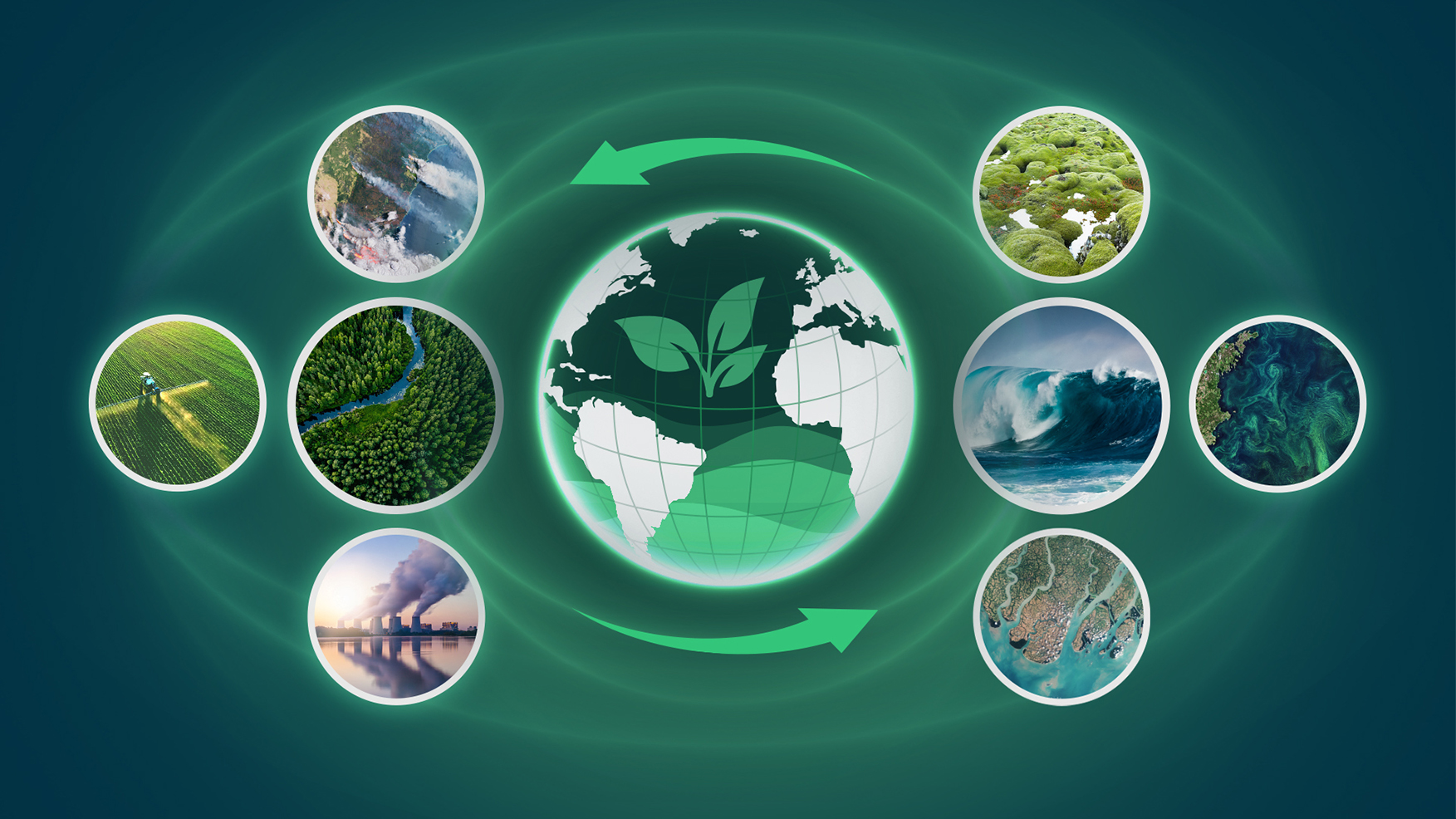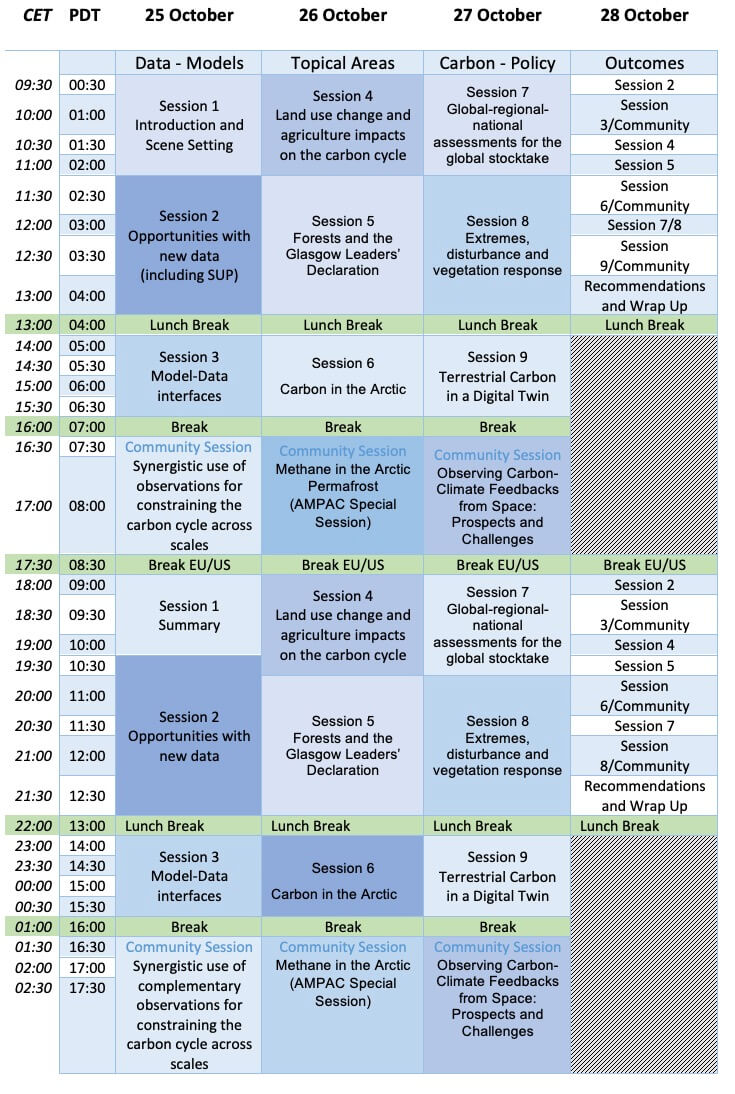
- This event has passed.
4th Carbon from Space Workshop: Characterising the land component of the Carbon Cycle and its connection with the ocean and atmosphere
October 25, 2022 - October 28, 2022
Hybrid

Background
Over the 5 years since the 3rd Carbon from Space workshop in Exeter in 2016, the efforts to implement the Committee on Earth Observation Satellites (CEOS) Carbon Strategy[1] have led to detailed plans for new satellite launches including, among others, Copernicus CO2M, BIOMASS, NISAR, FLEX, OCO-2, OCO-3, GEOCARB, GEDI and IceSat-2, all with potential to address the gaps in data and understanding of the carbon cycle. In addition, effective institutional arrangements for realisation of the Integrated Carbon Observing System have started to take shape e.g. through the European activity on developing an operational anthropogenic CO2 emissions monitoring and verification support capacity[2] and the establishment of improved or better coordinated in situ networks (NEON, ICOS, TERN, FOS[3] etc), as well as major improvements in the availability and consistency of satellite observations e.g. through the NASA MODIS records, ESA Climate Change Initiative (CCI)[4] and Copernicus Services.
Significant improvements have also been made in the estimation of the global carbon budget, in particular through the change to a concept of ‘imbalance’ through the quantification and parameterisation of the terrestrial carbon balance rather than consideration of the land as a residual (Friedlingstein et al. 2021[5]). In addition, significant advances have been made in the determination of the budgets of the two other major GHGs, methane (CH4) and nitrous oxide (N2O). However, such budgets, while they provide a global view and distribute the carbon by sector and region, are not sufficiently detailed for use in understanding regional or national carbon balance, especially in the terrestrial domain. There is, therefore, a pressing need to move further and faster, driven by the upcoming Global Stocktake process and the goal to limit global warming to well below 2, preferably to 1.5 degrees Celsius[6], compared to pre-industrial levels (IPCC). This requires that the knowledge base needs to improve in terms of process understanding but also consistency and quality of observation and prognosis across both time and space.
In collaboration with the Global Carbon Project, the European Commission and NASA, the European Space Agency (ESA) is convening the 4th Carbon from Space workshop to bring together the EO, in situ and Earth system science communities addressing the land component of the carbon cycle including their interfaces to the atmosphere and ocean domains and communities.
The workshop will be hybrid but based around dedicated topical sessions and community proposed sessions (see Annex II). Each session is envisaged to feature a mixture of talks and discussion to identify the recommended actions for the land domain and its interface with the atmosphere and ocean. For each topical session, there will be slots to accommodate changes in time zone and allow views from beyond Europe.
The objective of this workshop is to review progress against the recommendations of the 3rd Workshop[7] (see Annex I for Summary) and establish a revised strategic plan of research and development activities to guide the programmatic actions and investments on terrestrial carbon research for the time frame 2023–2028. This strategic plan is needed to help the Space Agencies and major funders to develop programmatic calls for research on the terrestrial carbon cycle, in particular in view of the Global Stocktake and wider commitments made under the Paris Agreement and subsequently COP26 in Glasgow.
The workshop completes the series of virtual meetings comprising the ATMOS2021 (https://atmos2021.esa.int) and Ocean Carbon from Space (https://oceancarbonfromspace2022.esa.int).
Visit the website for further information and to submit your session proposals and abstracts*
HERE
*News For abstract only: the submission has been extended to 30/06/2022
Preliminary Agenda
OVERVIEW

